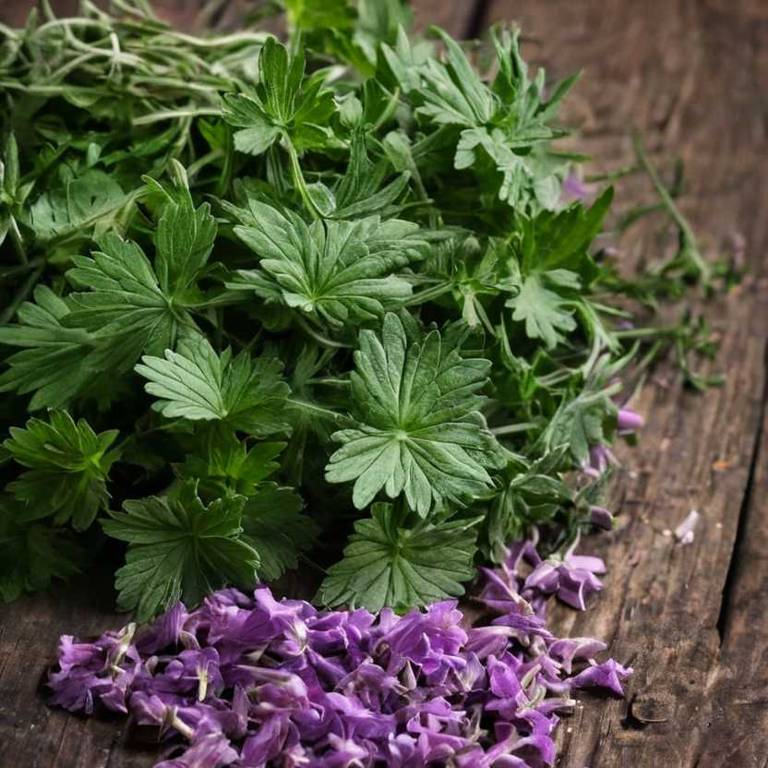By Leen Randell
Updated: Jul 06, 2024
What Are The Medicinal Properties Of Malva Sylvestris (Mallow)?

Malva sylvestris, also known as mallow, has health benefits such as reducing inflammation and soothing digestive issues.
Its medicinal constituents include mucilage, flavonoids, and phenolic acids, which contribute to its anti-inflammatory and antioxidant properties. The herb can be prepared into a tea, decoction, or powder, and is often used to treat conditions such as irritable bowel syndrome and skin irritations. Common side effects include mild gastrointestinal upset and allergic reactions.
Precautions include consulting a healthcare professional before using the herb, especially for pregnant or breastfeeding women, and monitoring for interactions with other medications.
This article explains the health benefits, active constituents, medicinal preparations, possible side effects, and precautions related to Malva sylvestris.
What are the health benefits of Malva sylvestris?
Malva sylvestris, also known as mallow, has health benefits such as soothing irritated skin, reducing inflammation, and promoting wound healing.
Its antibacterial and antifungal properties make it effective against infections, while its mucilaginous properties help to calm coughs and soothe digestive issues. Traditionally, mallow has been used to treat respiratory problems, such as bronchitis and asthma, due to its expectorant properties.
It also has antioxidant and anti-inflammatory effects.
Here's a detailed article about the 10 health benefits of Malva sylvestris.
What are the active constituents of Malva sylvestris?
Malva sylvestris, also known as mallow, has active constituents such as mucilages, flavonoids, and triterpenoid saponins, which contribute to its medicinal properties.
The mucilages provide soothing and anti-inflammatory effects, while the flavonoids possess antioxidant and anti-allergic activities.
The triterpenoid saponins have been shown to exhibit antimicrobial and anti-inflammatory properties, supporting the traditional use of mallow in treating digestive issues, respiratory problems, and skin conditions.
Here's a detailed article about the 10 active constituents of Malva sylvestris.
What are the medicinal preparations of Malva sylvestris?
Malva sylvestris, also known as mallow, has medicinal preparations such as infusions, syrups, and poultices.
The plant's mucilaginous properties make it a soothing treatment for skin irritations, inflammation, and wounds. The leaves and flowers are dried to create teas that aid digestion and soothe respiratory issues, while the roots are used to make tonics that treat liver and kidney problems.
These preparations have been used for centuries to promote overall well-being.
Here's a detailed article about the 10 medicinal preparations of Malva sylvestris.
What are the possible side effect of using Malva sylvestris improperly?
Improper use of Malva sylvestris, also known as mallow, increases the chances of experiencing side effects such as gastrointestinal issues, including diarrhea and stomach cramps.
Prolonged consumption can lead to allergic reactions, such as skin irritation and anaphylaxis in severe cases.
Additionally, mallow can interact with certain medications, including blood thinners and diabetes medications, reducing their effectiveness and increasing the risk of adverse reactions.
Here's a detailed article about the 10 most common side effects of Malva sylvestris.
What precautions to take when using Malva sylvestris medicinally?
Before using Malva sylvestris, also known as mallow, for medicinal purposes, you must take precautions such as consulting with a healthcare professional, especially if you have allergies or sensitivities.
Pregnant and breastfeeding women should exercise caution, as mallow may interact with other medications or stimulate uterine contractions.
Additionally, mallow can cause allergic reactions in some individuals, so monitor for signs of anaphylaxis and discontinue use if symptoms persist.
Here's a detailed article about 10 precautions to take when using Malva sylvestris.